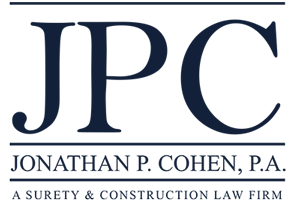Rising material costs can negatively impact construction projects and result in lost profits and other problems. Volatility in the market can also result in delays and cause potential harm to a contractor’s reputation. One thing that contractors should consider when drafting contracts is to include a price escalation clause in their contracts. Florida construction lawyer Jonathan P. Cohen, Esq. can help contractors anticipate potential problems and properly address them in their contracts.
Problem: Materials called for by a contract increase in price by 15% before the bid is accepted.
Answer: Contractors should mitigate against escalation in prices by identifying the materials that are most likely to be susceptible when they submit bids. They should discuss the potential price volatility of different materials with suppliers and then include an allowance in their bids for additional funds for materials if the price increases or discuss a shortened time for the bid to remain open to reduce the time within which the price change might occur.
Problem: Material prices increase after a bid is accepted.
Answer: After a bid is accepted, contractors can include a price escalation clause in their contracts. These types of clauses are frequently included in both private and public project contracts. For example, under Federal Acquisition Regulation §16.203-3, price escalation clauses are expressly permitted in certain types of federal contracts. A good price escalation clause will establish a baseline price for each type of material and allow for increases, decreases, and extensions of time when deliveries are delayed because of the potential unavailability of materials beyond the contractor’s control.
A price escalation provision includes an identification of the types of materials that are anticipated to fluctuate in price. The parties will then agree to the materials’ baseline prices based on current or anticipated economic conditions that are linked to current material cost indexes. By linking baseline prices to published cost indices, the parties will have a verifiable way to determine how much the price of a material fluctuates. The clause might include a minimum threshold that will allow for the contract to be adjusted once a change occurs over a minimum amount. The escalation clause might also include a maximum adjustment amount and require parties to adhere to specific notice procedures before an adjustment can occur.
Price escalation clauses benefit contractors, suppliers, and owners. They protect contractors and suppliers when market conditions result in substantial and rapid increases in material prices. They also benefit owners by limiting potential delays caused by increased material prices and avoiding terminations and defaults.
Problem: An unforeseen price escalation happens that was not accounted for when the parties entered a contract.
Answer: It is sometimes not possible for parties to foresee the particular materials that might abruptly increase in price. In this type of scenario, the parties should review the contract to determine whether or not it includes a price escalation clause or another provision that might help to determine who is responsible for unforeseen changes and the steps they must take to address them. If the contract includes a price escalation provision, it should contain steps the parties must take to adjust the contract. There might also be a force majeure provision for delays caused by something outside of the control of the contractor. However, force majeure clauses typically do not allow the contractor to seek additional compensation.
Before negotiating a contract, contractors should research the materials needed and their price volatility and look at national indices for pricing statistics. They should then negotiate price escalation provisions that are linked to the indices and that fit the specific contract that is being negotiated, including a triggering price from which the contract might be adjusted.
During the project, all material prices should be documented, and contractors should continue to review their costs together with any potential disruptions in the supply chain that could negatively impact the project. If possible, early in the project, parties should be allowed to purchase and pay for materials that are susceptible to volatility. Finally, it is important for the parties to keep open lines of communication with suppliers and the owner. That can allow the contractor to consult with other parties to revise plans or identify alternative materials when necessary.
Need Help with Price Escalation Clauses?
Contact Florida Construction Lawyer Jonathan P. Cohen
Prices for materials have dramatically increased over the past couple of years, resulting in project delays and lost profits for contractors. Including a price escalation clause in a construction contract can help mitigate potential problems. Florida construction lawyer Jonathan P. Cohen, Esq. has years of experience helping contractors draft contracts that can protect their interests. Call the law firm of Jonathan P. Cohen, P.A. at (954) 462-8850 to request a consultation.
The information provided in this article does not, and is not intended to, constitute legal advice.
The content in this article is presented for general informational purposes only.

